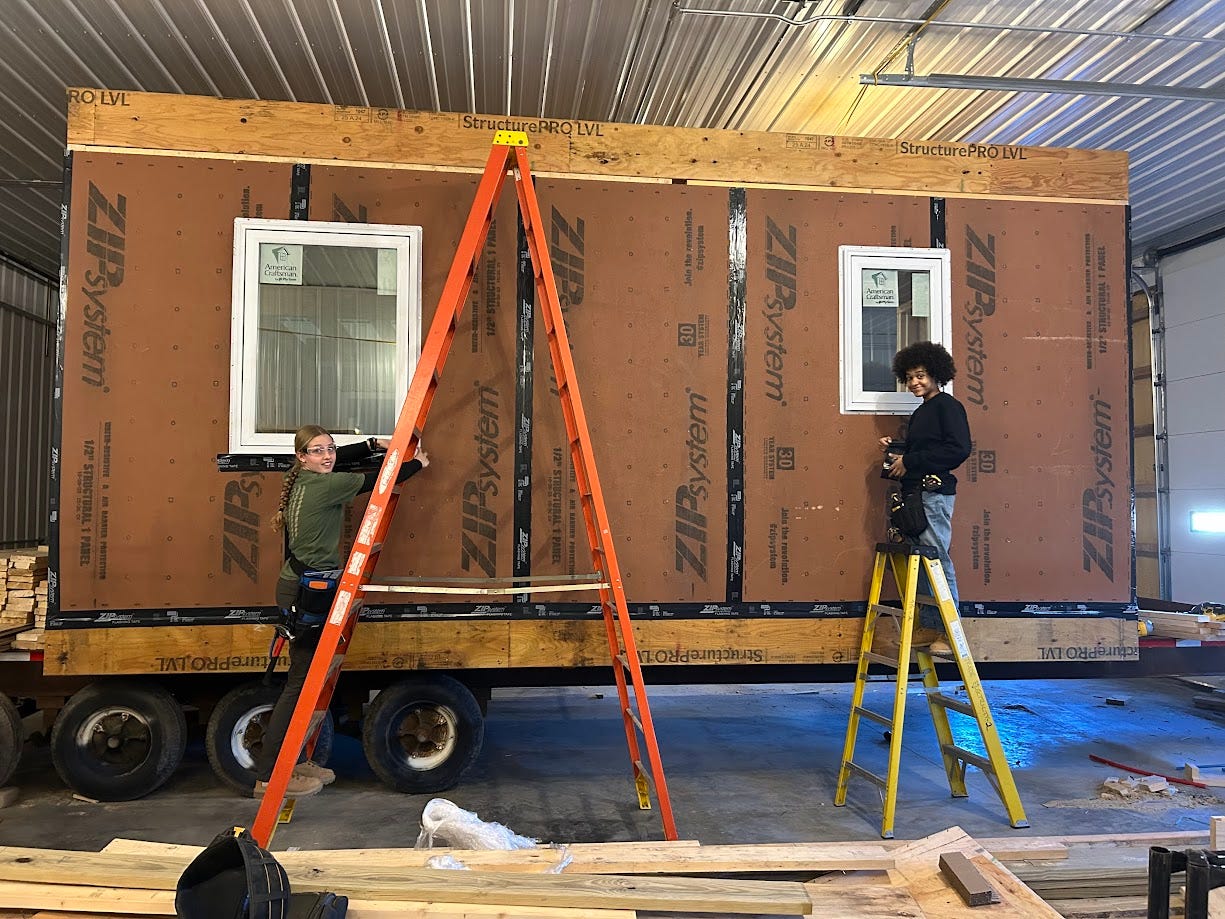Rumshock Veterans Program Works Through Civic Tangles to Continue Construction
A meeting of Port Jervis officials with Rumshock Veterans Foundation founder William Whetsel helped move the project forward.

Early in January, several Port Jervis officials met with William Whetsel, of Monroe, who is Rumshock Veterans Foundation founder, to address obstacles to progress with the building of Rumshock Village on East Main St.
On July 12, 2024, Port Jervis officials approved Rumshock Veteran Foundation’s plan to build ten tiny houses as part of a program to house homeless veterans and provide work training and other supports. BOCES carpentry instructor Corey Moore had volunteered to guide his students in building the tiny houses. They had built two half houses and were working on another when they found that they would have no place to put the constructions. Permits to prepare the property for the houses had not been issued. Billing for the Port Jervis building permit had apparently been mistaken initially and then, once the billing was rectified, payment had not gotten through city payment technology, Whetsel explained.
So construction stopped. Pouring of concrete for tiny house foundations had to be done while temperatures were above 40 degrees, and that time passed. No more could be built until they had a place to go. BOCES lacked space to store them.

At the Port Jervis meeting, Mayor Dominic Cicalese, First Ward Councilman Jason Vicchiarello, Fourth Ward Councilman Stan Siegel, City Clerk Treasurer Stacey Hosking, Building Inspector David Rivera, and Deputy Building Inspector Laurie Powrie clarified what was owed, what permits could be approved with payment and what could move forward for the Rumshock project.
After billing errors were rectified, Whetsel had paid what was due with a credit card that Hosking told him had not gotten through the city’s payment technology. So Whetsel paid the Rumshock contractor with his card, and the contractor had paid Port Jervis with a check, Whetsel said. Now, he said, the .75 acre Port Jervis property can be cleared and leveled and a remaining house there can be demolished and asbestos removed. Also, water and sewer mains must be connected and a sidewalk put in. A central building for community functions will also be built.
“With permits, I’ve got my foot on the gas,” Whetsel said. “But no visible changes will happen until March, when the weather warms enough for concrete to be poured. Last week Corey and the kids resumed work. They took the house they built outside to put on the roof.”
Meanwhile, Whetsel has visited similar veteran housing programs in other places, as he makes plans for veterans to grow hydroponic vegetables, recycle e-waste and have transportation. He noted that, to go places in Orange County, he pays $385, because of the lack of public transportation that can accommodate the wheelchair he needs. Transportation for needed services will also be important for Rumshock residents, he says.

Community focused news can only succeed with community support. Please consider the various subscription levels.
